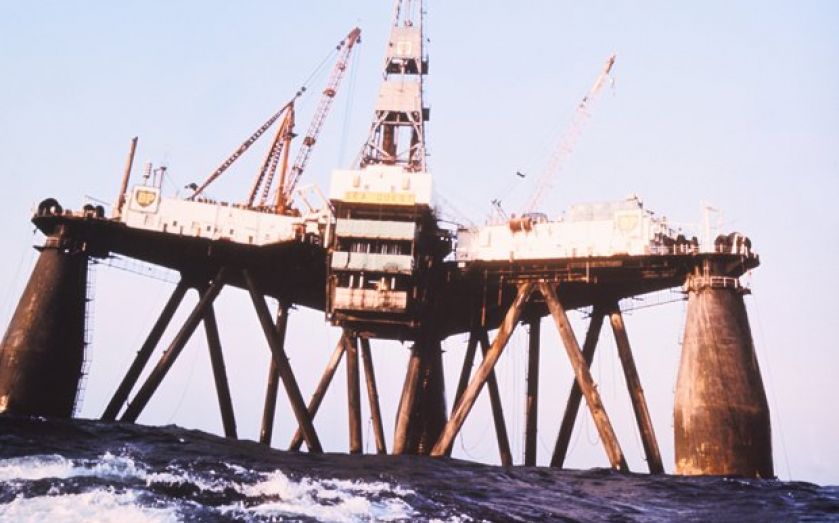It’s back to 1977 for UK oil output

THE UK North Sea’s oil production plunged to its lowest level since 1977 last year and is set to slump even lower in 2014, according to a new report from the Organisation of Petroleum Exporting Countries (Opec).
Britain’s oil supply fell to an average 860,000 barrels per day in 2013, a 10 per cent decline from the previous year. And projected production from the North Sea this year could fall to an average 800,000 barrels per day, the report warned.
UK oil production peaked at 2.82m barrels per day in 1999 and has been declining at around six per cent a year until recently, according to Opec figures. But it fell by more than 17 per cent in 2011 and 14 per cent in 2012 to less than one million barrels per day.
The industry has argued that the government has not provided enough support to the UK offshore oil and gas industry, resulting in less investment into the region and fewer projects.
The news comes ahead of oil veteran Sir Ian Wood’s report on how to maximise North Sea output, due to be published at the end of the month.
Opec’s warning also deals a fresh blow to those in favour of Scottish independence, after first minister Alex Salmond argued that North Sea oil resources would be able to sustain the country’s economy in the event of a separation.
The news comes as chancellor George Osborne prepares to deliver his strongest message yet on currency union with Scotland, during a speech today in Edinburgh.
Osborne is expected to pour cold water on Scottish nationalist hopes that an agreement could be reached for Scotland to keep the pound if it votes for independence. He has in the past said a currency union would be “unworkable.”
“I want Scotland to keep the pound and the economic security that it brings,” Osborne is expected to say. “I hope passionately that the people of Scotland … choose to stay within our family of nations here in the UK.”
Labour’s shadow chancellor Ed Balls and Liberal Democrat chief secretary to the Treasury Danny Alexander are both expected to follow suit today and say they would not allow an independent Scotland to keep the pound if it voted to leave the UK later this year.
Osborne’s speech will be accompanied by the publication of a Treasury document setting out the conditions required for currency union to work. The arrangement would result in a weaker independence for Scottish voters, who would likely have to accept a close fiscal relationship with Westminster.